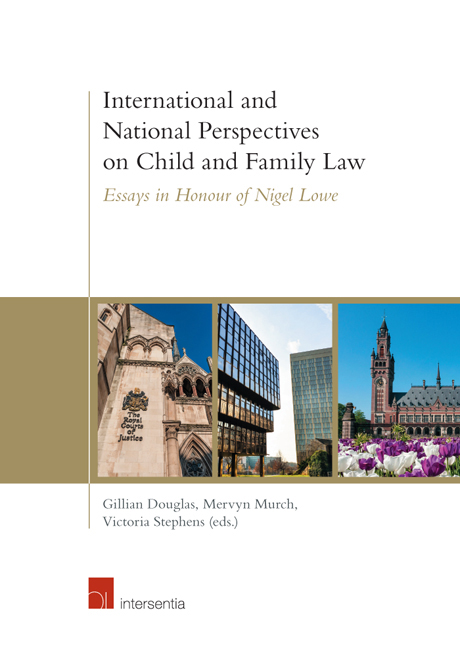Book contents
- Frontmatter
- Foreword
- Acknowledgements
- Contents
- List of Cases
- List of Contributors
- Introduction: Nigel Vaughan Lowe: An Appreciation
- Part I Family and Child Law in England and Wales
- The Supreme Court and Family Law
- The Development of Parent–Child Relationships in Family Law: The Cascade of Change
- Commitment-Based Parenting: Parental Responsibility in English Law
- Rights Children Should Not Have
- Empirical Research on Adoption of Children from Care
- Pathways to Adoption: From Long and Winding Road to Obstacle Course?
- Child Abuse and Public Inquiry Methodologies
- Lowe and the Inherent Jurisdiction
- Wards of Court
- Part II International Family Law
- Part III The Future for Family and Child Law
Rights Children Should Not Have
from Part I - Family and Child Law in England and Wales
Published online by Cambridge University Press: 12 October 2018
- Frontmatter
- Foreword
- Acknowledgements
- Contents
- List of Cases
- List of Contributors
- Introduction: Nigel Vaughan Lowe: An Appreciation
- Part I Family and Child Law in England and Wales
- The Supreme Court and Family Law
- The Development of Parent–Child Relationships in Family Law: The Cascade of Change
- Commitment-Based Parenting: Parental Responsibility in English Law
- Rights Children Should Not Have
- Empirical Research on Adoption of Children from Care
- Pathways to Adoption: From Long and Winding Road to Obstacle Course?
- Child Abuse and Public Inquiry Methodologies
- Lowe and the Inherent Jurisdiction
- Wards of Court
- Part II International Family Law
- Part III The Future for Family and Child Law
Summary
Much discussion of children's rights focuses on the need to protect children's rights better, and in many cases to increase them. Nigel Lowe's work has contributed significantly to this, especially in the international arena, and a sustained case for doing this has recently been made by Michael Freeman. I have long asserted how important it is to see children as right-holders. But what rights should they have? It was fashionable in some quarters in the 1970s to hold that children should have the same rights as adults, but today that would be regarded as an extreme position. Children need protection (itself a right) and treating children as if they had the same abilities as adults would weaken that. Nevertheless, many might still say that, provided a child had sufficient competence, he or she should indeed have the same rights as adults. Competence, not some arbitrary line (attainment of majority), should be the key.
But I want to consider some occasions when children do not, and perhaps should not, have the same rights as adults, even if otherwise competent. Take a straightforward example. A child cannot own land, and therefore cannot take out a mortgage in the UK, whereas an adult can, provided he or she satisfies certain (mainly financial) conditions. But what if, exceptionally, a 17 year-old were to satisfy all those conditions, and possess as much financial understanding as most adults have? Should such a child have the same rights to the mortgage as an adult? If not, why not? Would this extend to a right to receive pornographic material?
WHAT DOES IT MEAN TO HAVE A RIGHT?
Part of the problem in addressing such issues is obscurity over what it means to ‘have a right’. Neil MacCormick famously propounded a version of the interest theory in these terms:
to ascribe to all members of a class C a right to treatment T is to presuppose that T is in all normal circumstances a good for every member of C, and that T is a good which it would be wrong to withhold from any member of C.
What was essential for MacCormick was that there should be no ulterior purpose in ascribing the good: the good of the beneficiaries should be an end in itself.
- Type
- Chapter
- Information
- International and National Perspectives on Child and Family LawEssays in Honour of Nigel Lowe, pp. 53 - 64Publisher: IntersentiaPrint publication year: 2018



